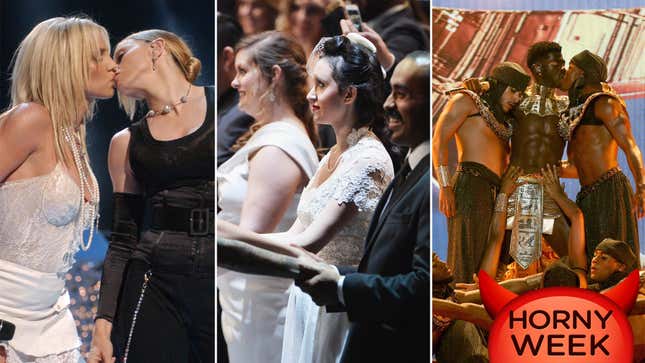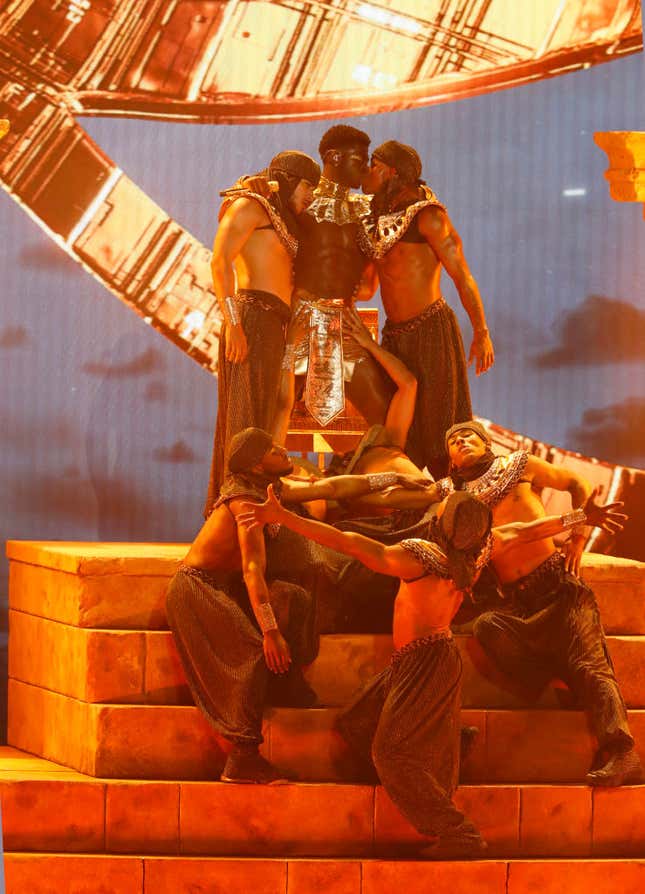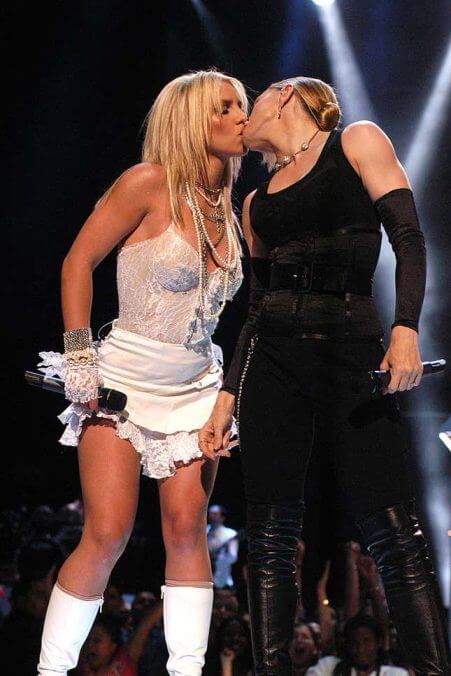We Need Better Same-Sex Awards Show Kisses
Through three kisses alone, we can track and understand the evolution of queerness in the mainstream, from fetishization to pure pleasure.
In DepthIn Depth

In 2021, Lil Nas X shared a deep kiss with his male backup dancer on the BET stage. For many viewers, this kiss was the alien cousin to other recent displays of pop star queerness—not quite the show-stopping sexuality (and vague scissoring) of Cardi B and Megan Thee Stallion’s Grammys performance, but also definitely not the loving prudishness of Ellen and Portia’s peck at the People’s Choice Awards. This kiss felt confrontational. Sexy. New.
Up on the gilded platform of highly publicized, nationally televised award ceremonies, same-sex affections aren’t actually rare. Adam Lambert put on a vaguely kinky rock-pop performance at the 2009 AMAs. St. Vincent and Dua Lipa shared vibes during the 2019 Grammys. Back in 1989, Boy George and Andy Bell exchanged a blink-and-you’ll-miss-it kiss at the Brit Awards in protest of the country’s anti-gay Section 28, which prohibited the “promotion of homosexuality.” But some kisses bring murkier cultural beliefs into sharp, lip-locked focus.
The Lil Nas X kiss, the mass marriage ceremony at the 2014 Grammys, and the 2003 Madonna-Britney peck at the VMAs (recently turned into an NFT) have that kind of staying power. None of these three kisses happened in a vacuum; each informs, evokes, contradicts, and converses with the others. And through these three kisses alone, we can track and understand the evolution of queerness in the mainstream. Because, for better or for worse, mainstream representation matters. Visibility for queer folks is a force that can push the needle on legal protections, economic opportunities, physical safety, and mental wellbeing. Visibility also means the freedom to get slutty on any stage you want.
Madonna and Britney Spears, queens of pop both, were at the height of their influence in 2003 when they performed a mashup of “Hollywood” and “Like a Virgin” with Christina Aguilera and Missy Elliott on the VMAs stage. Spears, adorned in a sexy-skimpy veil and wedding gown, stood on top of a wedding cake, where she was joined by Aguilera, also in a veil and gown, and later Madonna, dressed in a black tux and top hat. Sure, it was gender-playful, having cis straight women play bride(s) and groom, but the performance was still well within the bounds of the normative—just some over-the-top role play. Then, as Madonna finished her last note of “Hollywood,” she leaned in and kissed Britney.This was, if you haven’t already guessed, not a great era to be gay: The religious right had cemented its power in U.S. politics throughout the ‘90s, purity culture had its claws in the cultural consciousness, the Supreme Court had only just struck down the Texas ban on “homosexual conduct,” and there were very, very few out gay figures. The Britney-Madonna kiss landed right in the middle of it all, feeling a little too calculated.
-

-

-

-

-

-

-

-

-

-

-

-

-

-

-

-

-

-

-

-

-

-

-

-

-

-

-

-

-

-

-

-

-

-

-

-

-

-

-

-










































